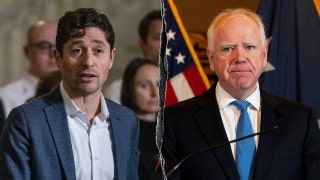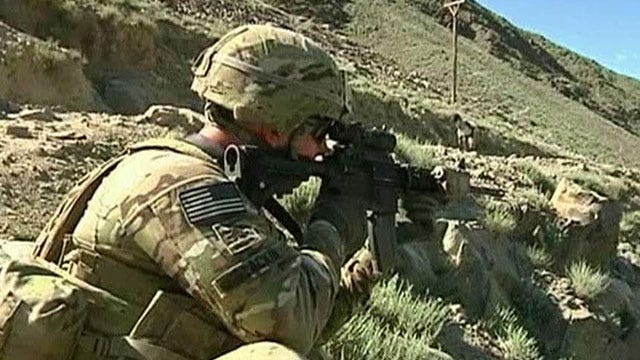Rpt: Obama to pen letter to Afghanistan admitting 'mistakes'
Fair and balanced debate on reported agreement in security deal
Secretary of State John Kerry announced Wednesday that he and Afghan President Hamid Karzai have reached an agreement on a critical security pact governing the presence of U.S. troops in Afghanistan beyond 2014.
The document will be presented to a meeting of tribal elders for their approval on Thursday.
"I'm pleased to say that in a series of conversations with President Karzai over the course of this morning ... that we reached an agreement as to the final language of the bilateral security agreement," Kerry announced.
The leaders are still looking for the endorsement of tribal elders for the document, which is not yet signed.
Kerry, though, denied that there was any sort of "apology" in the works, following reports on Tuesday that as part of the deal, President Obama would send a letter to the Afghan people acknowledging "mistakes."
The Afghan government on Thursday indeed posted a letter from Obama online. The U.S. government confirmed the letter was authentic; it did not include any statement of regret for "mistakes" in the country.
Instead, Obama wrote that he understands Karzai's interest in "the sensitive issue of the safety and privacy of people in their homes."
Obama wrote that "we will continue to make every effort to respect the sanctity and dignity of Afghans in their homes and in their daily lives, just as we do for our own citizens."
"Many of my countrymen and women have given their lives or been seriously wounded in the pursuit of protecting Afghans, and we honor the enormous sacrifices they have made, side by side with Afghans," Obama wrote.
Kerry earlier rejected the idea that any part of the deal would constitute an apology.
"Let me be clear: President Karzai didn't ask for an apology. There was no discussion of an apology. There will -- there is no -- I mean, it's not even on the table. He didn't ask for it, we're not discussing it," Kerry said.
The deal is still not finalized. Approval by the traditional council of 3,000 prominent Afghans, known as the Loya Jirga, is not guaranteed. The group can revise or reject any clause of the draft agreement, and a flat-out rejection would most likely prevent the Afghan government from signing it.
"We have agreed on the language that would be submitted to the Loya Jirga, but they have to pass it," Kerry said.
The biggest sticking point has been the Afghan government's jurisdiction over U.S. troops. The Afghans wanted to try U.S. troops in Afghanistan if they commit a crime, something the U.S. ruled out.
There was also the issue of night raids -- the details of what U.S. forces will be allowed to do if they remain after 2014 remains controversial.
While U.S. officials have not yet disclosed the number of U.S. troops they want to keep in Afghanistan post-2014, Kerry said the role of the U.S. military would be "limited."
"It is entirely train, equip and assist. There is no combat role for United States forces, and the bilateral security agreement is a way to try to clarify for Afghans and for United States military forces exactly what the rules are with respect to that ongoing relationship," he said.
The deaths of Afghan civilians at the hands of U.S.-led NATO forces have been a sensitive issue in the U.S.-Afghanistan relationship, although more Afghan civilians die as a result of insurgent attacks.
The Associated Press contributed to this report.













































